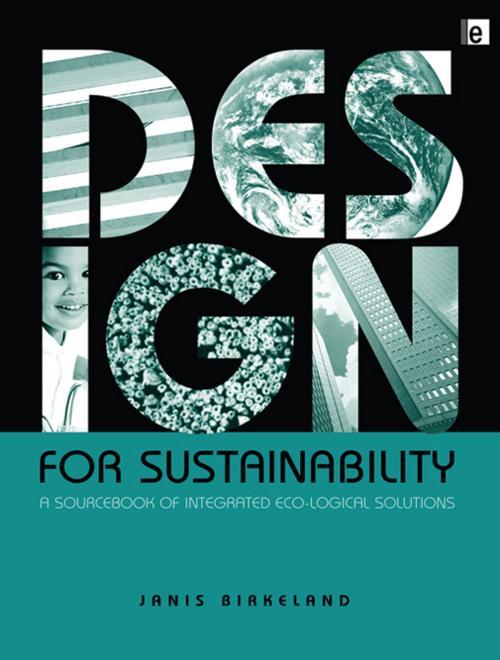Design for Sustainability
A Sourcebook of Integrated Ecological Solutions
Nonfiction, Art & Architecture, Architecture, Landscape| Author: | Janis Birkeland | ISBN: | 9781136568404 |
| Publisher: | Taylor and Francis | Publication: | May 4, 2012 |
| Imprint: | Routledge | Language: | English |
| Author: | Janis Birkeland |
| ISBN: | 9781136568404 |
| Publisher: | Taylor and Francis |
| Publication: | May 4, 2012 |
| Imprint: | Routledge |
| Language: | English |
With radical and innovative design solutions, everyone could be living in buildings and settlements that are more like gardens than cargo containers, and that purify air and water, generate energy, treat sewage and produce food - at lower cost. Birkeland introduces systems design thinking that cuts across academic and professional boundaries and the divide between social and physical sciences to move towards a transdiciplinary approach to environmental and social problem-solving. This sourcebook is useful for teaching, as each topic within the field of environmental management and social change has pairs of short readings providing diverse perspectives to compare, contrast and debate. Design for Sustainability presents examples of integrated systems design based on ecological principles and concepts and drawn from the foremost designers in the fields of industrial design, materials, housing design, urban planning and transport, landscape and permaculture, and energy and resource management.
With radical and innovative design solutions, everyone could be living in buildings and settlements that are more like gardens than cargo containers, and that purify air and water, generate energy, treat sewage and produce food - at lower cost. Birkeland introduces systems design thinking that cuts across academic and professional boundaries and the divide between social and physical sciences to move towards a transdiciplinary approach to environmental and social problem-solving. This sourcebook is useful for teaching, as each topic within the field of environmental management and social change has pairs of short readings providing diverse perspectives to compare, contrast and debate. Design for Sustainability presents examples of integrated systems design based on ecological principles and concepts and drawn from the foremost designers in the fields of industrial design, materials, housing design, urban planning and transport, landscape and permaculture, and energy and resource management.















